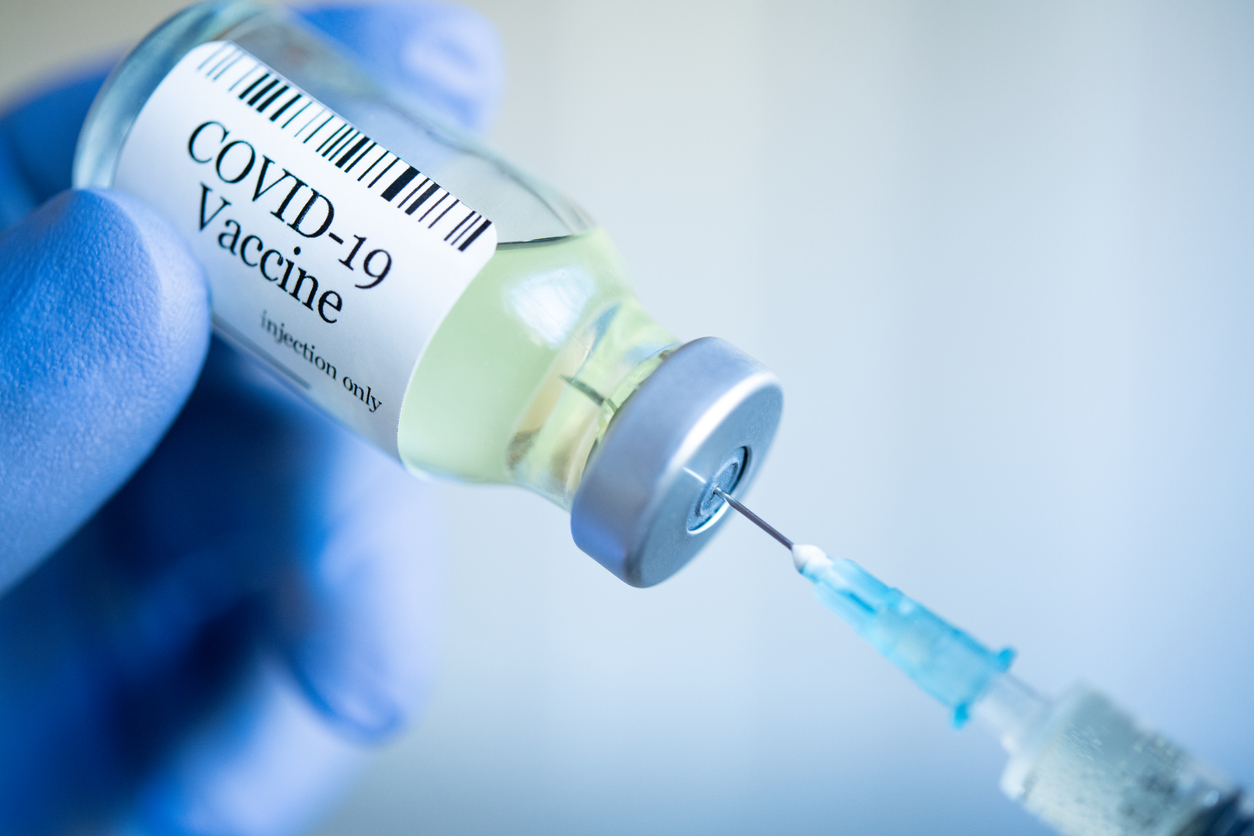In January 2020, the first infections of the novel coronavirus SARS-CoV-2 were reported in the United States. Within weeks, infection spread rapidly, putting millions of Americans at risk of developing a severe – even fatal – respiratory illness called COVID-19. Researchers raced to develop vaccines against COVID, including a candidate from Johnson & Johnson (J&J). Nursing homes adopted risk management plans that supplemented the broad protections of nursing home insurance. These plans included COVID immunization programs using J&J vaccines and those produced by Pfizer and Moderna. Rare symptoms began to appear in those vaccinated with the J&J vaccine, leading to concerns about the vaccine’s safety. What is the truth behind adverse reactions to the J&J vaccine?
Vaccine Development
Pharmaceutical companies around the world sought to combat the spread of COVID-19 by developing effective vaccines. By fall 2020, two vaccine candidates, the Pfizer/BioNTech and Moderna vaccines, received Emergency Use Authorization (EUA) by the U.S. Food and Drug Administration.
Following suit was the vaccine candidate developed by Johnson & Johnson. Referred to as the “Jannsen” vaccine due to its development by J&J subsidiary Jannsen Pharmaceutical Companies, this vaccine candidate differed from the two previous COVID vaccines because it was a single-shot vaccine; recipients need only get one dose to create an effective immune response. The FDA authorized the J&J vaccine with an EUA in February 2021.
Adverse Reactions to the J&J Vaccine
In clinical trials, the J&J vaccine demonstrated 85% effectiveness in preventing hospitalization and death due to COVID complications. Millions of doses were produced by J&J; the company projected the delivery of 100 million doses by March 2021. By April, the FDA and the U.S. Centers for Disease Control and Prevention (CDC) reported several adverse reactions, with several recipients experiencing blood clots, specifically a condition called thrombosis with thrombocytopenia syndrome (TSS). This rare syndrome affects a greater proportion of women; the vaccine’s adverse reaction affected about 7 in every million female vaccine recipients between the ages of 18 and 49. Women older than 50, such as those in nursing homes or other long-term care facilities, experienced an adverse reaction rate of about 0.9 per one million vaccines. In all, 15 instances of TSS were reported to the FDA’s Vaccine Adverse Event Reporting System (VAERS).
As a precaution, regulatory authorities recommended a pause on the J&J vaccine distribution on April 13, 2021 while adverse reactions were investigated. A few days later, the recommended pause was lifted, with the CDC and FDA arguing that the benefits of the vaccine greatly outweighed rare complications or adverse effects. Healthcare organizations restarted vaccination programs using the J&J vaccine immediately.
Protecting Nursing Home Residents
Nursing home managers know that nursing home insurance serves as the foundation upon which risk management programs are built. This insurance protects facilities, staff, and assets against a wide range of risk exposures. Because many residents of nursing homes are at risk of health complications, immunization programs have been an important part of risk management in these facilities for decades. As the coronavirus pandemic spread, nursing homes were disproportionately affected; according to a database compiled and updated by the New York Times, about 32% of all U.S. COVID deaths were directly related to long-term care facilities. When vaccines received EUAs, nursing homes scrambled to vaccinate their residents.
It is important to understand that there are potential risks with any vaccine; the coronavirus vaccines produced by Pfizer, Moderna, and J&J are no exception. Adverse effects are extremely rare, so the benefit of delivering vaccines to at-risk residents significantly outweighs the potential for health complications. Nursing home insurance is only one part of the strategy to protect nursing home staff, residents, and financial assets. With the development and delivery of effective vaccines against COVID-19, nursing homes are doing their part to protect America’s seniors.
About Caitlin Morgan
Caitlin Morgan specializes in insuring assisted living facilities and nursing homes and can assist you in providing insurance and risk management services for this niche market. Give us a call to learn more about our programs at (877) 226-1027.


